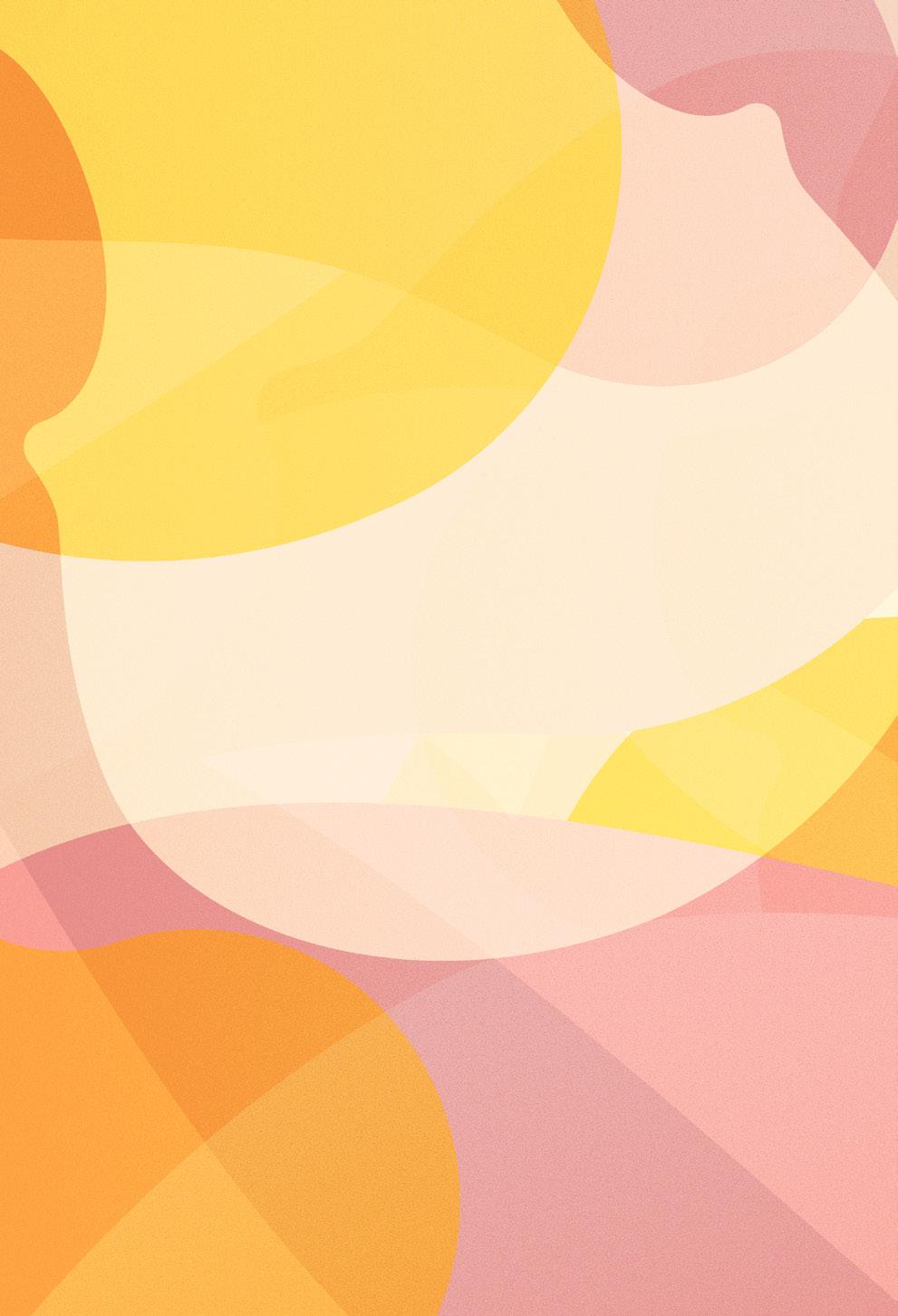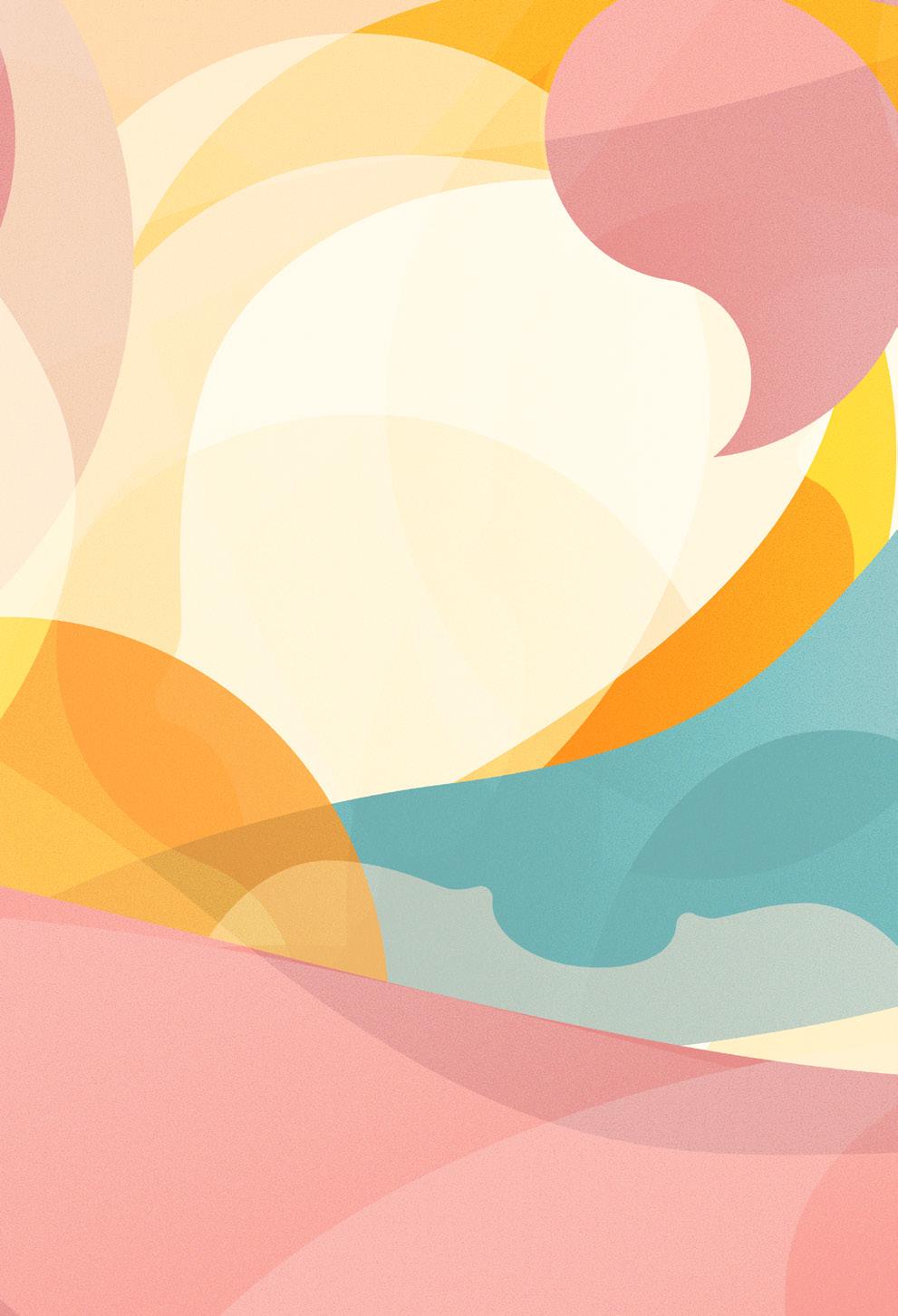
The Gannochy Trust has supported the Perth Concert Series annually since 1995. In recent years the Trust’s major grant has enabled the four partners to develop opportunities for young people to engage with live orchestral music, encouraging a lifetime connection while at the same time developing a range of important transferable skills.
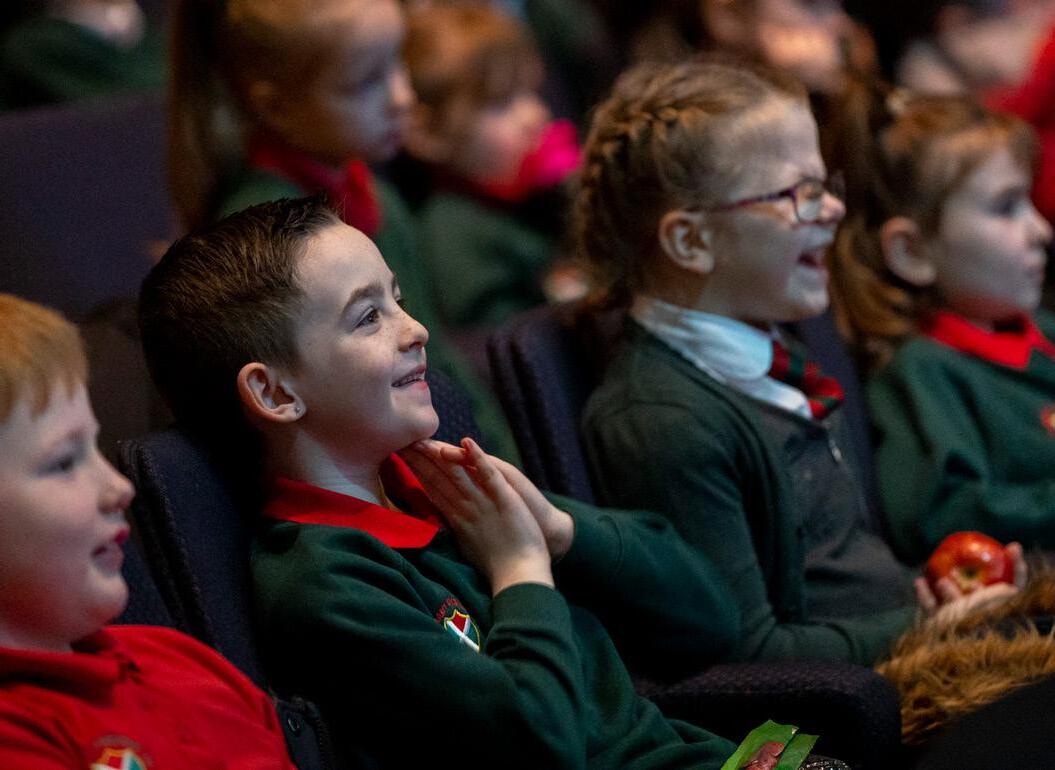
We are very grateful for the continuing support of The Gannochy Trust in making the Perth Concert Series possible and we look forward to sharing many wonderful concerts with you in the coming months.
Further information about the Trust is available at gannochytrust.org.uk

A FESTIVAL OF BRAHMS
One of the Romantic period’s greatest composers is celebrated in a concert full to the brim with his glorious music. Music Director Thomas Søndergård explores Brahms’ grand, melodic and poetic symphonies, as well as his stirring overture inspired by student drinking songs.
BRAHMS Academic Festival Overture Op80 [10’]
BRAHMS Symphony No3 in F major Op90 [32’]
INTERVAL
BRAHMS Symphony No2 in D major Op73 [39’]
Thomas Søndergård Conductor
Royal Scottish National Orchestra
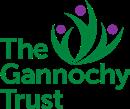
PERTH CONCERT HALL
Thu 30 Mar 2023 7.30pm
Dedicated to Dr Robert Lillie in recognition of the generous support of the RSNO Foundation.
If viewing these notes at the concert, please do so considerately and not during performances. Please silence all mobile telephones and alerts, and refrain from taking photographs, without flash, until the end of each piece.
The RSNO’s performance in Perth is kindly supported by The Gannochy Trust












































































































































































































































































































































































































4 A Festival of Brahms
WELCOME
Welcome to this evening’s concert, a veritable feast of Brahms performed by the RSNO under Music Director Thomas Søndergård.
The last Brahms cycle I performed in while I was with the Philharmonia Orchestra was conducted by Sir Charles Mackerras – familiar to audiences in Scotland through his work as Principal Guest Conductor of the Scottish Chamber Orchestra – at the Royal Festival Hall.
Performing Brahms’ symphonies is an important marker for an orchestra’s development and an expression of its relationship with a conductor. I can’t wait to see what Thomas brings to the stage tonight. Speaking to him about this concert programme, it’s clear how passionate he is about performing Brahms’ symphonies as a measure of the Orchestra’s cohesion and the quality of its collective sound. During the pandemic it was Brahms’ music that he turned to for ‘quiet contemplation’, hearing it in a new way as he was at the time simply listening, not performing.
This afternoon the Orchestra performed for schoolchildren in Perth in the latest of our Once Upon A Tune concerts with author and illustrator James Mayhew. Over the past two months the Orchestra has performed for thousands of children across the country as part of the RSNO’s free National Schools Concert Programme, which includes the live tour, concert film and teaching resources. A vital and exciting part of our work, I’m hopeful that the concerts will have inspired a lifelong interest in music in Scotland’s youngest audiences.
On behalf of the RSNO, I’d like to pass on my thanks to The Gannochy Trust for their continued support of the Orchestra’s activities in Perth, including their support of the Perth Concert Series since 1995.
Alistair Mackie CHIEF EXECUTIVE
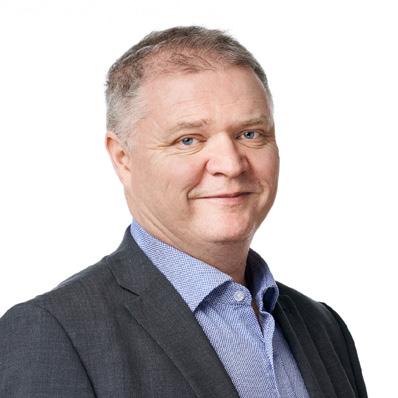
RSNO: Scotland’s National Orchestra 5
ROYAL SCOTTISH NATIONAL ORCHESTRA




































































6 A Festival of Brahms
1–9 10–18 19–27 28–36 37–45 46–54 55–63 64–68
RSNO: Scotland’s National Orchestra 7 ARTISTIC TEAM Thomas Søndergård 1 MUSIC DIRECTOR Neeme Järvi 2 CONDUCTOR LAUREATE Alexander Lazarev 3 CONDUCTOR EMERITUS Kellen Gray 4 ASSISTANT CONDUCTOR Stephen Doughty 5 DIRECTOR, RSNO CHORUS Patrick Barrett 6 DIRECTOR, RSNO YOUTH CHORUS FIRST VIOLIN Maya Iwabuchi LEADER 7 Sharon Roffman LEADER 8 Lena Zeliszewska 9 ASSOCIATE LEADER Tamás Fejes ASSISTANT LEADER 10 Patrick Curlett ASSISTANT PRINCIPAL 11 Caroline Parry 12 Ursula Heidecker Allen 13 Lorna Rough 14 Susannah Lowdon 15 Alan Manson 16 Elizabeth Bamping 17 Liam Lynch 18 SECOND VIOLIN Jacqueline Speirs 19 ASSOCIATE PRINCIPAL Marion Wilson ASSOCIATE PRINCIPAL 20 Nigel Mason 21 Paul Medd 22 Harriet Hunter 23 Anne Bünemann 24 Sophie Lang 25 Robin Wilson 26 Emily Nenniger 27 VIOLA Tom Dunn PRINCIPAL 28 Felix Tanner ASSOCIATE PRINCIPAL VIOLA 29 Asher Zaccardelli ASSISTANT PRINCIPAL 30 Susan Buchan SUB PRINCIPAL 31 Lisa Rourke SUB PRINCIPAL 32 Nicola McWhirter 33 Claire Dunn 34 Katherine Wren 35 Maria Trittinger 36 Francesca Hunt 37 CELLO Betsy Taylor ASSOCIATE PRINCIPAL 38 Kennedy Leitch ASSISTANT PRINCIPAL 39 Rachael Lee 40 Sarah Digger 41 Robert Anderson 42 Gunda Baranauskaitė 43 DOUBLE BASS Michael Rae ASSISTANT PRINCIPAL 44 Sally Davis 45 FLUTE Katherine Bryan PRINCIPAL 46 Helen Brew ASSOCIATE PRINCIPAL 47 Janet Richardson 48 PRINCIPAL PICCOLO OBOE Adrian Wilson PRINCIPAL 49 Peter Dykes ASSOCIATE PRINCIPAL 50 Henry Clay PRINCIPAL COR ANGLAIS 51 CLARINET Timothy Orpen 52 PRINCIPAL CLARINET Duncan Swindells 53 PRINCIPAL BASS CLARINET BASSOON David Hubbard PRINCIPAL 54 Luis Eisen ASSOCIATE PRINCIPAL 55 Paolo Dutto 56 PRINCIPAL CONTRABASSOON HORN Alison Murray ASSISTANT PRINCIPAL 57 Andrew McLean 58 ASSOCIATE PRINCIPAL David McClenaghan 59 Martin Murphy ASSISTANT PRINCIPAL 60 TRUMPET Christopher Hart PRINCIPAL 61 TROMBONE Dávur Juul Magnussen PRINCIPAL 62 Lance Green ASSOCIATE PRINCIPAL 63 Alastair Sinclair 64 PRINCIPAL BASS TROMBONE TUBA John Whitener PRINCIPAL 65 TIMPANI Paul Philbert PRINCIPAL 66 PERCUSSION Simon Lowdon PRINCIPAL 67 John Poulter ASSOCIATE PRINCIPAL 68
Johannes Brahms (1833-1897)
ACADEMIC FESTIVAL OVERTURE Op80
FIRST PERFORMANCE
Breslau (now Wrocław, Poland), 4 January 1881
DURATION 10 minutes
Brahms’ own academic training was fairly basic. He never studied at a university and, when it came to music and the wider humanities, he mostly taught himself, which makes the range and depth of knowledge and culture he achieved all the more impressive. But together with his friend, the virtuoso violinist Joseph Joachim, Brahms had thrown himself into the student social life of the city of Göttingen in the summer of 1853, and memories of those escapades – and of the students’ robust drinking songs – stayed with him for a long time afterwards.
So when, in 1879, the University of Breslau conferred the title of Honorary Doctor of Philosophy on him, Brahms responded by composing an overture which wasn’t quite the solemn, intellectually rigorous affair its title seemed to promise. Brahms himself conducted the premiere, in Breslau in 1881, and while there may have been a little tut-tutting from some of the faculty’s more earnest representatives, the general impression seems to have been that it went down rather well.
The opening may be subdued and in the minor key, but the muted jog-trot first theme suggests that mischief is brewing. Eventually a hush descends and an expectant pp timpani roll introduces something that really does sound grand and resplendent: a noble brass hymn tune, based on the patriotic song ‘Ich hab mich ergeben’ (I am devoted to you with heart and hand, land full of love and life). Memories of its stately phrases linger as the opening tune breaks out joyously in the major key, leading to
a gorgeous second theme (first and second violins deliciously divided) based on another popular fraternity song, ‘Hört, ich sing das Lied der Lieder’ (Listen, I sing the song of songs), in praise of ideal and earthly beauty.
Next, two perky bassoons launch ‘Was kommt dort von der Höh?’ (What comes from up yonder?), traditionally sung as part of an initiation rite for first-year students. A condensed recapitulation of these themes marks a formal nod towards respectable textbook ‘sonata form’, then the Overture does something decidedly unconventional. The time shifts to three in a bar, and through a rich brocade of percussion (triangle, cymbals and bass drum) and surging strings, perhaps the most famous of all student songs, Gaudeamus igitur (So let us rejoice), sounds out triumphantly on woodwind and brass.
© Stephen Johnson
8 A Festival of Brahms
SYMPHONY No3 in F major Op90
romantic Horn Trio of 1865 than to anything in the other three symphonies.
FIRST PERFORMANCE
Vienna, 2 December 1883
DURATION 32 minutes
Brahms’ Third is the subtlest, the least epic, of his four symphonies. Very unusually for a 19th-century symphony, all four movements end quietly, and there are times, especially in the middle two movements, where the style and expression are closer to chamber music, a field in which Brahms often revealed his most private thoughts and feelings. There are close, intimate dialogues, particularly between solo woodwind instruments, while the beautiful long horn solo in the third movement, with its delicate string accompaniment, is closer in style and atmosphere to the gloriously
Beyond that, the older Brahms’ habitual mask of ‘classical objectivity’ slips more often here than in any of his other big orchestral works. The Third Symphony begins with the wind instruments outlining a rising three-note motif which dominates the first movement and returns to wind up the argument at the end of the finale. Brahms rarely even hinted at personal meanings in his orchestral works, but he did reveal that this motif had a specific significance: the three notes, F–A–F, ‘spell’ a motto in German, Frei aber froh – ‘Free but happy’ – an expression of proud defiance, perhaps, by the famously lifelong bachelor. But it’s striking how Brahms flattens the second note of the opening motif, A, and adds a questioning dissonance underneath. The word aber (‘but’) is therefore emphasised – a shadow of doubt?
Immediately after this motto comes a magnificent downward-plunging violin theme. Its opening phrase is a direct quotation from another Third Symphony, that of the young Brahms’ mentor, encourager and, for a painfully brief time, surrogate father, Robert Schumann. Schumann’s attempted suicide and final descent into madness in 1854 was a profound shock for Brahms. Much of Brahms’ first movement is carried along by a strong, buoyant forward current; but just before the return of the first theme the tempo slows, the mood darkens (telling use of the contrabassoon here) and Brahms quotes one of his own choral works, ‘Begräbnisgesang’ (Funeral Song), composed not long after Schumann’s death. Then, suddenly, the original F–A–F motif returns with full force. It’s as though a shadow of remembered grief has passed over the music – so much so that Brahms has to rally himself
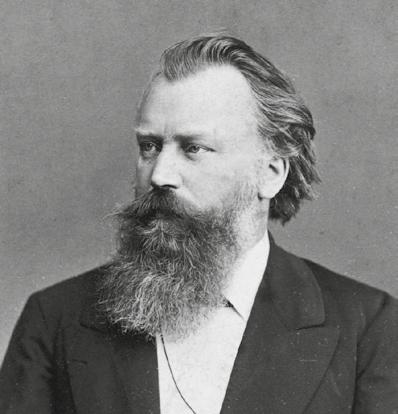
RSNO: Scotland’s National Orchestra 9
Johannes Brahms (1833-1897)
1. Allegro con brio
2. Andante
3. Poco Allegretto
4. Allegro
and grasp again the happiness of freedom. Schumann may be no more, he seems to say, but his spirit lives on in Brahms himself, as Schumann had once prophesied.
The middle two movements are much gentler, and scored for reduced forces (no trumpets, drums or contrabassoon). The opening woodwind melody of the Andante, with its answering phrases on low strings, is like an idyllic pastoral hymn, but the more searching second theme (clarinet, bassoon, with rich supporting string chords) leads into more troubled regions. Pastoral imagery is also suggested in the following Poco Allegretto The rustling string figures accompanying the gorgeous cello melody may evoke rustling foliage. The suggestion of a woodland setting is confirmed when the opening melody is taken up at length by the horn: for German-speaking composers the horn is the romantic woodland instrument.
The finale brings the stormiest, most driven music in the whole Symphony, though the darkly purposeful opening is momentarily interrupted by a kind of brief reverie (woodwind against more rustling strings), followed by a sombre hymn-like figure, pianissimo – more ‘funeral’ music? From this an impassioned, striving Allegro springs to life. One may be led to expect a noisily triumphant or perhaps even a tragic conclusion. But at the end it is the element of romantic reverie (again woodwind and rustling strings) that prevails, leading to a quiet return of the Symphony’s original motto and ‘Schumann’ themes. No triumph, no tragedy, the music seems to say, just peaceful acceptance.
© Stephen Johnson
What was happening in 1883?
4 Jan The weekly general-interest magazine Life was first published in Los Angeles
28 Apr The first rugby sevens tournament was played at Melrose RFC
23 May Robert Louis Stevenson’s children’s adventure novel Treasure Island was first published in book format
24 May The Brooklyn Bridge in New York opened to traffic after a 13-year construction period
3 Jul The SS Daphne sank on its launching at Govan, killing 124, many of them young boys
4 Jul The world’s first rodeo was held, at Pecos, Texas
26-27 Aug The volcanic island of Krakatoa, between Java and Sumatra, erupted; the eruption and subsequent tsunamis killed more than 36,000 people
29 Aug The first Carnegie Library opened in Dunfermline, the home town of its benefactor, the industrialist Andrew Carnegie
4 Oct The Boys’ Brigade was founded in Glasgow by Sir William Alexander Smith
8 Nov English composer Sir Arnold Bax was born
10 A Festival of Brahms
SYMPHONY No2 in D major Op73
to take form. This time the music fairly flowed from him. His close confidante Clara Schumann reported to the conductor Hermann Levi that ‘Brahms is in good spirits, delighted with his summer holiday and has, in his head at least, a new Symphony in D major; he already has the first movement down on paper.’
FIRST PERFORMANCE
Vienna, 30 December 1877
DURATION 39 minutes
As so often when Brahms was in ‘good spirits’, he gleefully set about leading his eager friends down the wrong path. To Clara Schumann he reported that the first movement was ‘quite elegiac in character’. To his publisher, Fritz Simrock, he wrote, ‘The new Symphony is so melancholy that you won’t be able to bear it. I have never written anything so sad … you must put a black edge round the score to give an outward show of grief.’
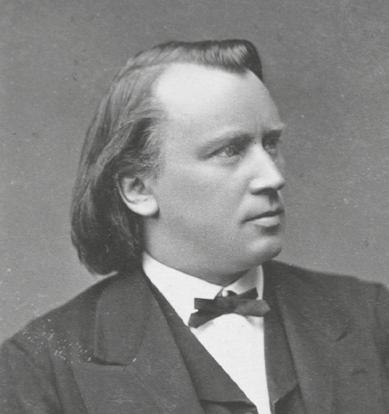
However robust and combative Brahms may have seemed in public, in private he was prone to painful self-doubt and profound depression. It took him two decades, involving much nervous consultation with friends, to finish his First Symphony. His relief at the triumphant success of its premiere in 1876 was immense, and for a while it seems to have boosted his mood and self-confidence. The following summer Brahms took a holiday at the lakeside resort of Pörtschach in the Austrian Alps, and almost immediately another symphony began
One can imagine Brahms’ smile of satisfaction when he saw the effect of his new Symphony’s opening on his woefully ill-prepared friends. The Second Symphony begins – after the tiniest of introductions on cellos and basses – with a horn and woodwind theme that positively glows with pleasure. From this grows a magnificent long first movement which flows like a broad, sunlit river. This is also one of Brahms’ most generously melodic symphonic first movements, and yet so many of its thematic ideas grow from the horn theme at the start and from the cellos’ and basses’ tiny introductory motif. There are a few more troubled moments near the movement’s central climax but, on the whole, it seems Brahms has vanquished melancholy and silenced his inner critic.
In the Adagio non troppo that follows, however, there are moments when Brahms’ remarks about ‘melancholy’ and ‘grief’ may not seem so wide of the mark. The first theme, nobly sung by cellos with a rich bass accompaniment,
RSNO: Scotland’s National Orchestra 11
Johannes Brahms (1833-1897)
1. Allegro non troppo
2. Adagio non troppo
3. Allegretto grazioso (Quasi Andantino) –Presto ma non assai
4. Allegro con spirito
does have an elegiac quality. After the lilting second theme, the mood grows troubled until, in a moment of eerie hush, solo trombone and tuba sound darkly through nervous tremolando strings. A distinctly romantic vista momentarily opens out, reminiscent of the darkly atmospheric, ruin-haunted landscapes of the German painter Caspar David Friedrich.
The third movement, on the other hand, is one of the most playful things Brahms ever composed. We begin with a gentle, elegant pastoral dance theme for woodwind above a walking pizzicato (plucked) bass on cellos. Suddenly the tempo lurches forward and a racing but at first still mostly hushed Presto ma non assai begins. The whole movement is a kind of affectionate contest between these two types of dance movement. The slower original music wins, but as it does so, the key turns minor, the mood wistful, and again a cloud passes momentarily over the sun.
The fleet-footed finale is full of reminders of how much Brahms admired Joseph Haydn, the master of sophisticated musical wit and sometimes earthy humour. There is one more moment of shadowy mystery (more soft, darkvoiced bass brass sounding through rustling strings) at the heart of this movement, but the ending is one of uproarious high spirits, culminating in a great shout of joy from high trombones. Then with four emphatic majorkey chords the Symphony Brahms called his lieblicher Ungeheuer – his ‘lovely monster’ –concludes.
© Stephen Johnson
What was happening in 1877?
1 Jan Queen Victoria was proclaimed Empress of India by the Royal Titles Act 1876
2 Mar Rutherford B Hayes was declared US President, despite Samuel J Tilden having won the popular vote
15-19 Mar The first Test cricket match was held between England and Australia, in Melbourne; Australia won by 45 runs
5 May Sitting Bull led his Lakota people into Canada to avoid harassment from the US Army
6 May Crazy Horse surrendered the Oglala Sioux people to US troops in Nebraska
15 Jun Henry Ossian Flipper became the first African American cadet to graduate from the US Military Academy
20 Jun Edinburgh-born Alexander Graham Bell installed the first commercial telephone service, in Hamilton, Ontario
22 Oct The Blantyre mining disaster killed 207 miners, when firedamp, a flammable gas, was ignited by a naked flame
29 Nov Thomas Edison demonstrated for the first time the phonograph, a machine that could record sound
12 A Festival of Brahms
THOMAS SØNDERGÅRD Conductor
In November 2021 Thomas conducted the RSNO in the world premiere of Detlev Glanert’s Violin Concerto No2 To the Immortal Beloved (with Midori) during the 2021 United Nations Climate Change Conference (COP26) held in Glasgow. Recent highlights with the RSNO have included tours to China and the US, the premiere of Wynton Marsalis’ Violin Concerto with Nicola Benedetti (also at the 2022 BBC Proms) and much-praised performances at the Edinburgh Festival.
Danish conductor Thomas Søndergård has been Music Director of the RSNO since the 2018:19 Season, following six seasons as Principal Guest Conductor. From 2012 to 2018 he was Principal Conductor of the BBC National Orchestra of Wales (BBC NOW), after stepping down as Principal Conductor and Musical Advisor of the Norwegian Radio Orchestra. He becomes Music Director of the Minnesota Orchestra in September 2023.
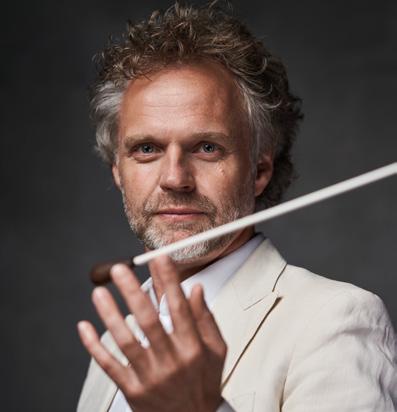
Thomas has appeared with many notable orchestras in leading European centres, such as Berlin (including the Berliner Philharmoniker, Rundfunk-Sinfonieorchester Berlin, Mahler Chamber Orchestra), Leipzig (Gewandhausorchester), Paris (Orchestre National de France), London (London Philharmonic, BBC Symphony, London Symphony and Philharmonia), Amsterdam and Rotterdam (Royal Concertgebouw, Netherlands Philharmonic, Rotterdam Philharmonic), and throughout Scandinavia. North American appearances have included the orchestras of Chicago, Toronto, Atlanta, Vancouver, Houston and Seattle.
Following his acclaimed debut for Royal Danish Opera with Poul Ruders’ Kafka’s Trial, Thomas has returned regularly to conduct repertoire ranging from contemporary to Le nozze di Figaro, Il barbiere di Siviglia, La bohème, The Cunning Little Vixen and Il viaggio a Reims, and has made short concert tours with the Royal Danish Orchestra. He has also enjoyed successful collaborations with Norwegian Opera and Royal Swedish Opera. His Stockholm productions of Tosca and Turandot (both with Nina Stemme) led to his Bayerische Staatsoper debut, conducting main season and Opera Festival performances of Turandot with Stemme. He made his Deutsche Oper Berlin debut with the world premiere of Andrea Lorenzo Scartazzini’s Edward II and has since returned for Berlioz’s Romeo and Juliet
Thomas has recorded with violinist Vilde Frang and the WDR Köln and cellist Johannes Moser and the Rundfunk-Sinfonieorchester
Berlin, and the music of Poul Ruders with the Aarhus Symphony, Norwegian Radio Orchestra and Royal Danish Opera. For Linn Records he has recorded Sibelius symphonies and tone poems with the BBC NOW, and Prokofiev symphonies 1 and 5 and Richard Strauss’ Ein Heldenleben with the RSNO.
RSNO: Scotland’s National Orchestra 13
ROYAL SCOTTISH NATIONAL ORCHESTRA
Formed in 1891 as the Scottish Orchestra, the company became the Scottish National Orchestra in 1950, and was awarded Royal Patronage in 1977. The Orchestra’s artistic team is led by Danish conductor Thomas Søndergård, who was appointed RSNO Music Director in October 2018, having previously held the position of Principal Guest Conductor. Hong Kong-born conductor Elim Chan succeeds Søndergård as Principal Guest Conductor.

The RSNO performs across Scotland, including concerts in Glasgow, Edinburgh, Dundee, Aberdeen, Perth and Inverness. The Orchestra appears regularly at the Edinburgh International Festival and the BBC Proms, and has made recent tours to the USA, China and Europe.
The Orchestra is joined for choral performances by the RSNO Chorus, directed by Stephen Doughty. The RSNO Chorus evolved from a choir formed in 1843 to sing the first full performance of Handel’s Messiah in Scotland. Today, the RSNO Chorus is one of the most distinguished large symphonic choruses in Britain. The Chorus has performed nearly every work in the standard choral repertoire, along with contemporary works by composers including John Adams, Howard Shore and Sir James MacMillan.
The RSNO has a worldwide reputation for the quality of its recordings, receiving a 2020 Gramophone Classical Music Award for Chopin’s Piano Concertos (soloist: Benjamin Grosvenor), conducted by Elim Chan; two Diapason d’Or awards for Symphonic Music (Denève/Roussel 2007; Denève/Debussy 2012) and eight GRAMMY Awards nominations. Over 200 releases are available, including Thomas Søndergård conducting Strauss (Ein Heldenleben, Der Rosenkavalier Suite) and Prokofiev (Symphonies Nos1 and 5), the complete symphonies of Sibelius (Gibson), Prokofiev (Järvi), Bruckner (Tintner) and Roussel (Denève), as well as further discs championing the music of William Grant Still (Eisenberg), Xiaogang Ye (Serebrier) and Thomas Wilson (Macdonald).
The RSNO’s pioneering learning and engagement programme, Music for Life, aims to engage the people of Scotland with music across key stages of life: Early Years, Nurseries and Schools, Teenagers and Students, Families, Accessing Lives, Working Lives and Retired and Later Life. The team is committed to placing the Orchestra at the centre of Scottish communities via workshops and annual residencies.
14 A Festival of Brahms
ON STAGE
FIRST VIOLIN
Maya Iwabuchi
LEADER
Lena Zeliszewska
ASSOCIATE LEADER
Tamás Fejes
ASSISTANT LEADER
Evgeny Makhtin
Caroline Parry
Ursula Heidecker Allen
Elizabeth Bamping
Lorna Rough
Susannah Lowdon
Alan Manson
Liam Lynch
Gillian Risi
Kirstin Drew
Fiona Stephen
SECOND VIOLIN
Julia Noone
GUEST PRINCIPAL
Jacqueline Speirs
Marion Wilson
Nigel Mason
Paul Medd
Harriet Hunter
Anne Bünemann
Sophie Lang
Robin Wilson
Emily Nenniger
John Robinson
Colin McKee
VIOLA
Tom Dunn
PRINCIPAL
Felix Tanner
Asher Zaccardelli
Lisa Rourke
Claire Dunn
Katherine Wren
Maria Trittinger
Francesca Hunt
David McCreadie
Elaine Koene
CELLO
Betsy Taylor
ASSOCIATE PRINCIPAL
Kennedy Leitch
Rachael Lee
Sarah Digger
Robert Anderson
Gunda Baranuaskaitė
William Paterson
Susan Dance
DOUBLE BASS
Frank Dolman
GUEST PRINCIPAL
Michael Rae
Moray Jones
Alexandre dos Santos
Piotr Hetman
Kirsty Matheson
FLUTE
Katherine Bryan
PRINCIPAL
Oliver Roberts
Emma Roche
OBOE
Adrian Wilson
PRINCIPAL
Peter Dykes
CLARINET
Timothy Orpen
PRINCIPAL
Katie Lockhart
BASSOON
David Hubbard
PRINCIPAL
Luis Eisen
Paolo Dutto
PRINCIPAL CONTRABASSOON
HORN
Alexander Boukikov
GUEST PRINCIPAL
Alison Murray
Andrew McLean
Christine McGinley
Andrew Saunders
TRUMPET
Christopher Hart
PRINCIPAL
Robert Smith
Brian McGinley
TROMBONE
Dávur Juul Magnussen
PRINCIPAL
Lance Green
Alastair Sinclair
PRINCIPAL BASS TROMBONE
TUBA
John Whitener
PRINCIPAL
TIMPANI
Paul Philbert
PRINCIPAL
PERCUSSION
Simon Lowdon
PRINCIPAL
John Poulter
Stuart Semple
RSNO: Scotland’s National Orchestra 15
SHOWSTOPPING
EDN FRI 21 APR
GLW SAT 22 APR
Johansen Pan
Tchaikovsky Violin Concerto
Tchaikovsky Symphony No6 Pathétique

Tabita Berglund Conductor
Randall Goosby Violin
The RSNO is supported by the Scottish Government
rsno.org.uk
SUPPORTING THE RSNO
I am honoured and extremely proud to be Music Director of the RSNO. It is through the continued generosity of you, our friends, donors and supporters, that we can continue to achieve and realise the most ambitious goals of the Orchestra.
One of the wonders of the RSNO is how it brings high-quality music not only to concert halls, but to the wider community. From hospital settings to care homes, from our Astar app for families with newborns to our National Schools Concert Programme, our music touches so many lives in Scotland and beyond.
RSNO BENEFACTORS
RSNO Benefactors are beacons of philanthropic inspiration, providing truly transformative financial support to the Orchestra that enables us to build and deliver long-term strategic plans. Benefactors share the RSNO’s vision
Your support is the cornerstone of all that we do, as it allows us to continually build and develop.
Thank you for being part of this wonderful Orchestra’s journey, as we adapt and grow towards a bright future.
Thomas
for orchestral music and work with us to drive the organisation forward, helping us to realise our future plans and ambitions.
Sir Ewan and Lady Brown
Gavin & Kate Gemmell
RSNO CONDUCTORS’ CIRCLE
The RSNO Conductors’ Circle is an inspirational group of individual supporters at the heart of the RSNO’s Individual Giving programme. Our members’ annual philanthropic gifts enable us to realise the Orchestra’s most ambitious goals. Conductors’ Circle members support inspirational concert performances for our audiences alongside transformational education programmes in communities across Scotland, via our ground-breaking initiative Music for Life.
The RSNO is very grateful for the continued support of its Conductors’ Circle:
Ardgowan Charitable Trust
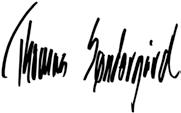
Geoff and Mary Ball
Stina Bruce Jones
Ian and Evelyn Crombie
Carol Grigor and the Trustees of Dunard Fund
Kenneth and Julia Greig
Ms Chris Grace Hartness
Kat Heathcote and Iain Macneil
Bruce and Caroline Minto
David and Alix Stevenson
Eric and Karen Young
We would also like to thank those generous donors who wish to remain anonymous.
For more information on becoming a Benefactor or part of the Conductors’ Circle, please contact Jenny McNeely at jenny.mcneely@rsno.org.uk
RSNO: Scotland’s National Orchestra 17
Søndergård MUSIC DIRECTOR, RSNO
RSNO PATRON PROGRAMME
CHAIR PATRON
From musical activities in schools with the musicians of the future to working in community venues across Scotland, as a Chair Patron you are enabling RSNO musicians to explore the many facets of their art and the positive impact it has on people’s lives. Supporting an individual musician puts you at the heart of the RSNO family. You’re connected directly to the musicians on stage and get to enjoy privileged behind-the-scenes access. RSNO musicians truly appreciate our Chair Patrons and enjoy developing personal relationships with our supporters.
Assistant Conductor
Kellen Gray
The Solti Foundation Chair
First Violin
Maya Iwabuchi LEADER
Sharon Roffman LEADER
Dunard Fund Chair
Tamás Fejes ASSISTANT LEADER
The Bill and Rosalind Gregson Chair
Patrick Curlett
ASSISTANT PRINCIPAL
The RSNO Circle Chair
Alan Manson
The Hugh and Linda Bruce-Watt Chair
Elizabeth Bamping
The WL and Vera Heywood Chair
Ursula Heidecker Allen
The James and Iris Miller Chair
Lorna Rough
The Hilda Munro Chair
Second Violin
Marion Wilson
ASSOCIATE PRINCIPAL
The Nigel and Margot Russell Chair
Sophie Lang
The Ian and Evelyn Crombie Chair
Viola
Tom Dunn PRINCIPAL
The Cathy & Keith MacGillivray Chair
Lisa Rourke SUB PRINCIPAL
The Meta Ramsay Chair
Francesca Hunt
The Rolf and Celia Thornqvist Chair
Cello
Betsy Taylor
ASSOCIATE PRINCIPAL
The Maxwell Armstrong Chair
Kennedy Leitch
ASSISTANT PRINCIPAL
The David and Anne Smith Chair
Rachael Lee
The Christine and Arthur Hamilton Chair
Double Bass
Michael Rae
James Wood Bequest Fund Chair
With thanks to the Gregor Forbes John Clark Chair for its support of the RSNO Double Bass section Flute
Katherine Bryan PRINCIPAL
The David and Anne Smith Chair
Helen Brew ASSISTANT PRINCIPAL
The Gordon Fraser Charitable Trust Chair
Oboe
Adrian Wilson PRINCIPAL
The Hedley Wright Chair
Peter Dykes
ASSOCIATE PRINCIPAL
Witherby Publishing Group Charitable Trust Chair
Cor Anglais
Henry Clay PRINCIPAL
In memory of a dear friend, Fiona H
Bassoon
David Hubbard PRINCIPAL
The James and Morag Anderson Chair
Horn
Christopher Gough PRINCIPAL
The Springbank Distillers Chair
Martin Murphy
ASSISTANT PRINCIPAL
The John Mather Trust’s Rising Star Chair
Alison Murray
ASSISTANT PRINCIPAL
Mr & Mrs Pierre and Alison Girard
David McClenaghan
The J & A Mitchell Chair
Trumpet
Christopher Hart PRINCIPAL
Ms Chris Grace Hartness
Trombone
Dávur Juul Magnussen
PRINCIPAL
The Mitchell’s Glengyle Chair
Lance Green
ASSOCIATE PRINCIPAL
The William Cadenhead Chair
Timpani
Paul Philbert
Ms Chris Grace Hartness
Percussion
John Poulter
ASSOCIATE PRINCIPAL
The Dot and Syd Taft Chair
Library and Orchestra
Assistant
Xander van Vliet
The Hilda Munro Chair
We would like to acknowledge the generous contribution of Mr Hedley Wright in supporting the RSNO Chair Patron Programme.
18 A Festival of Brahms
LEARNING AND ENGAGEMENT PATRON
Our Learning and Engagement activity is structured around our Music for Life programme. From apps for babies to concerts and workshops for school children, and lunchtime concerts for older adults, the range of projects is vast. As a Patron, you will have access to our projects to bring you closer to the communities we serve across Scotland.
Learning and Engagement Patrons
William Brown, W.S.
Neil and Nicola Gordon
Professor Gillian Mead, FRSE
Mr Maurice Taylor CBE
RSNO Principal Oboe, Adrian Wilson

The RSNO Dundee Circle Committee
Witherby Publishing Group Charitable Trust
NEW WORKS PATRON
The RSNO is dedicated to bringing new works and outstanding new talent to audiences across Scotland. Our New Works Patrons contribute a significant legacy to orchestral music that extends beyond the RSNO, providing new music for orchestras and audiences around the world – for generations to come.
New Works Patron
Susie Thomson
We are also grateful to those who give but wish to remain anonymous.
If you would like more information or would like to discuss how you can become part of the RSNO Family of Supporters, please contact Jenny McNeely, Head of Individual Giving and Partnerships, at jenny.mcneely@rsno.org.uk
We would like to thank all those who have donated to our new Play Your Part Appeal. The generosity of our supporters at this time is deeply appreciated.
RSNO: Scotland’s National Orchestra 19
Musical Memories
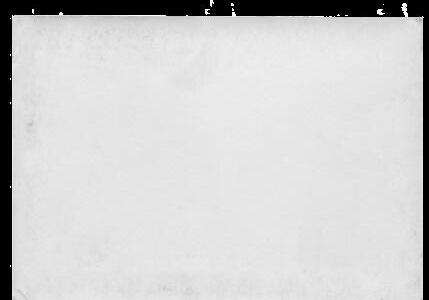
Leave a gift to the RSNO and ensure future generations can create their own Musical Memories of the Royal Scottish National Orchestra.
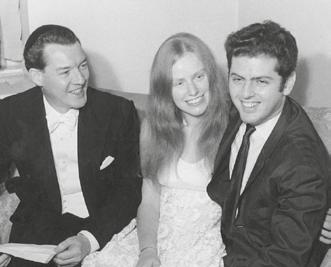
We all have special Musical Memories. It could be learning to play an instrument when you were a child, or a special piece of music that just left you breathless the first time you heard the Orchestra play it. Maybe it was seeing a soloist you had always wanted to hear, or just a great concert shared with friends. Memories such as these make music such an important part of our lives.
Leaving a gift to the RSNO in your will is the single most important way you can help us to make music and to create memories. Your legacy will support the work of the Orchestra for years to come, ensuring that we can continue to bring great music to a new generation of children, young people and adults right across Scotland. It is easy to leave a gift. After you have made provisions for family and friends, please think of the Orchestra.
Your gift is important to us and to everyone in Scotland who enjoys music. Contact your solicitor to draft a will or add a codicil to your current will.


If your estate is subject to inheritance tax, a gift to a charity, such as the RSNO, is tax-free and will reduce the amount of tax payable to the Government. Please ask your solicitor for details.
For more information please visit rsno.org.uk/memories
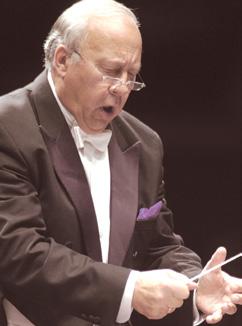
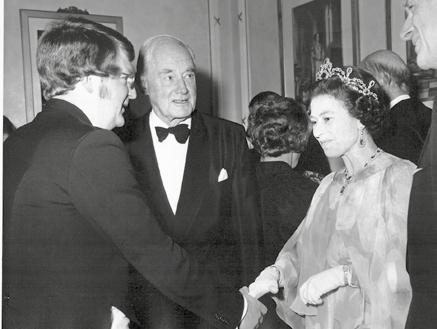
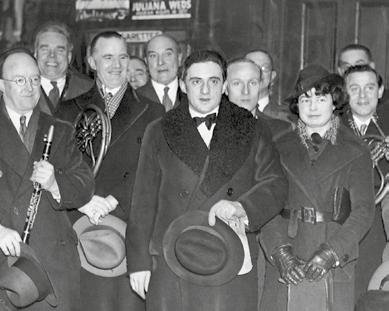

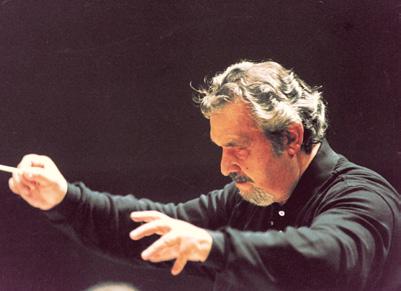

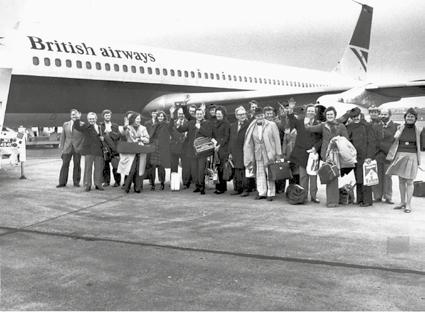
If you would like to discuss this further, please contact Torran McEwan, Individual Giving and Partnerships Officer, in the strictest confidence, at torran.mcewan@rsno.org.uk
To the many among you who have pledged to leave a gift already – thank you.
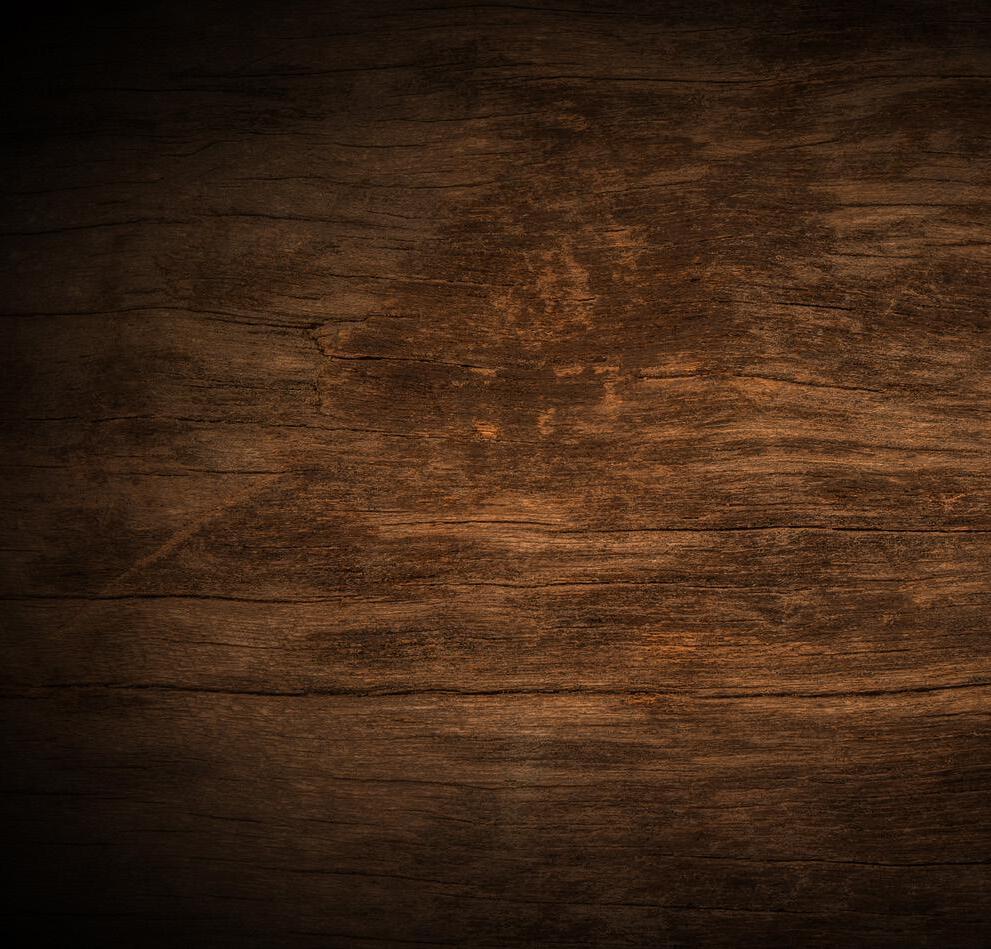

CHARITABLE TRUSTS AND FOUNDATIONS
Charitable trusts and foundations have a distinguished history of supporting the RSNO, both on and off stage. From one-off donations for specific projects to multi-year funding for our flagship outreach initiatives, including the National Schools Concert Programme and Young Creatives, every grant in support of our work is truly appreciated. We are grateful to the following trusts and foundations for their generosity:
Aberdeen Endowments Trust
Alexander Moncur Trust
Alma & Leslie Wolfson Charitable Trust
Balgay Children’s Society
Boris Karloff Charitable Foundation
Brownlie Charitable Trust
Castansa Trust
CMS Charitable Trust
Cookie Matheson Charitable Trust
Cruach Trust
Cruden Foundation
David and June Gordon Memorial Trust
D’Oyly Carte Charitable Trust


Dunclay Charitable Trust
Educational Institute of Scotland
Edgar E Lawley Foundation
Ettrick Charitable Trust
Fenton Arts Trust
Forteviot Charitable Trust
Gaelic Language Promotion Trust
Gannochy Trust
Gordon Fraser Charitable Trust
Harbinson Charitable Trust
Hugh Fraser Foundation
Idlewild Trust
James Wood Bequest Fund

Jean & Roger Miller’s Charitable Trust
Jennie S Gordon Memorial Foundation
Jimmie Cairncross Charitable Trust
John Mather Charitable Trust
John Scott Trust Fund
Jones Family Charitable Trust
JTH Charitable Trust
Leach Family Charitable Trust
Leng Charitable Trust
Mary Janet King Fund
McGlashan Charitable Trust
McLay Dementia Trust
MEB Charitable Trust
Meikle Foundation
Mickel Fund
Murdoch Forrest Charitable Trust
Nancie Massey Charitable Trust
Noël Coward Foundation
Northwood Charitable Trust
P F Charitable Trust
Pump House Trust
Q Charitable Trust
Ronald Miller Foundation
R J Larg Family Trust
Russell Trust
Scops Arts Trust
Scott Davidson Charitable Trust
Solti Foundation
Souter Charitable Trust
Stevenston Charitable Trust
Sylvia Aitken Charitable Trust
Tay Charitable Trust
Thomson Charitable Trust
Thriplow Charitable Trust
Tillyloss Trust
Vaughan Williams Foundation
WA Cargill Fund

Walter Craig Charitable Trust
Walter Scott Giving Group
Walton Foundation
Wavendon Foundation
William Syson Foundation
William S Phillips Fund
Zich Trust
We are also grateful to a number of trusts that wish to stay anonymous.
If you would like more information about our work and how you can make a difference, please contact Naomi Stewart, Head of Trusts and Projects, at naomi.stewart@rsno.org.uk
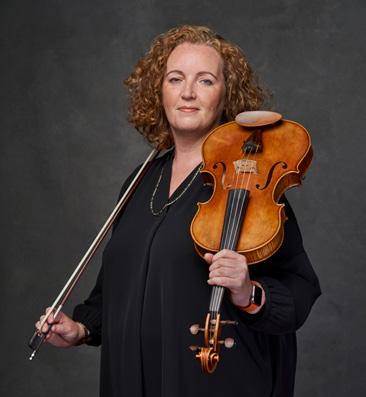
RSNO: Scotland’s National Orchestra 21
RSNO CIRCLE

The Circle is a vital part of the RSNO family. Our community of music-lovers inspire and support us. Supporting us by joining the Circle will help us to bring music to so many people, from our Learning and Engagement programmes to our brand-new digital performances. As part of our community and family, we will keep in touch with our exclusive magazine Inner Circle, our Circle member webpage and invitations to special events throughout the year.
To find out more about joining the Circle please visit rsno.org.uk/circle or get in touch with Torran McEwan, Individual Giving and Partnerships Officer, at torran.mcewan@rsno.org.uk
To all our existing Circle members, thank you. Thank you for your unwavering support that allows us to continue sharing the joy of music.
Virtuoso
Ms Catherine Y Alexander
Mrs A M Bennett
Mr Alan and Mrs Carolyn Bonnyman
Dame Susan and Mr John Bruce
Mrs Stina Bruce-Jones
Stephen and Morny Carter
Francesca and Eoghan Contini Mackie
Sir Sandy and Lady Crombie
Ms Margaret Duffy and Dr Peter Williamson
Gavin and Kate Gemmell
Dr M I and Mrs C R Gordon
Scott and Frieda Grier
Judith and David Halkerston
Iain MacNeil and Kat Heathcote
Miss A McGrory
Miss M Michie
Mr James Miller CBE
Nicholas and Alison Muntz
Meta Ramsay
Mr George Ritchie
Mr P Rollinson
Mr and Mrs W Semple
Mr Ian Taft
Claire and Mark Urquhart
Raymond and Brenda Williamson
Mr Hedley G Wright
Symphony
Mr Anderson
Mr W Berry
Mr John Brownlie
Miss L Buist
Mr and Mrs J K Burleigh
Mrs E Gibb
Mr I Gow
Mr J D Home
Mrs J Kennedy
Mrs A Lamont
Mr I C MacNicol
Professor J and Mrs S Mavor
Mrs McQueen
Mrs A McQueen
Morag Millar
Mr Miller
Mrs A Morrison
Graham and Elizabeth Morton
Mr and Mrs David Robinson
Mr D Rogerson
Mrs Ann M Stephen
Mr Alistair M and Mrs Mandy Struthers
Mr and Mrs M Whelan
Concerto
Dr K Chapman and Ms S Adam
Mr A Alstead
Mr N Barton
Miss D Blackie
Mr L Borwick
Neil and Karin Bowman
Dr C M Bronte-Stewart
Dr F L Brown
Mr and Mrs Burnside
Ms H Calvert
Mr A Campbell
Sir Graeme and Lady Catto
Mr R Cavanagh
Myk Cichla
Dr J Coleiro
Ms R Cormack
Mr and Mrs B H Cross
Christine and Jo Danbolt
Mr P Davidson
Mr J Diamond
Mr S Dunn
Mr C Ffoulkes
Mr and Mrs M Gilbert
Professor J R and Mrs C M Gray
Mrs S Hawthorn
Richard and Linda Holden
Mr N Jack
Ms H Kay
Mr and Mrs W Kean
Mrs M King
Christine Lessels
Mr R M Love
Mr D MacPherson
Mr R G Madden
Mrs K Mair
Mr and Mrs Marwick
Mr S Marwick
Mr and Mrs G McAllister
Ms M McDougall
Mr Rod McLoughlin
Mrs B Morinaud
Mr A Morrison
Dr and Mrs D Mowle
Dr C C and Mr K R Parish
Mr I Percival
Mr and Mrs D Pirie
Ms A and Miss I Reeve
Mrs E Robertson
Miss L E Robertson
Mr D Rogerson
Ross family
Dr and Mrs G K Simpson
Mr and Mrs A Stewart
Mrs M Stirling
Mr G Stronach
Dr G R Sutherland
Mr I Szymanski
Mr and Dr Tom Thomson
Mr J B and Mrs M B Watson
Mr and Mrs D Weetman
Mrs Wigglesworth
Mr and Mrs Zuckert
Sonata
Ms S Ace
Mr K Allen
Mrs P Anderson
Ms D Baines
Mr O Balfour
Mr N Barton
Dr A D Beattie
Mrs H Benzie
Mr R Billingham
Dr and Mrs Blake
Lord and Lady Borthwick
Rev P Boylan
John Bradshaw and Shiona Mackie
Mr and Mrs Bryan
Lady J Bute
Mrs C Campbell
Miss S M Carlyon
Mr J Claxon
Lady Coulsfield
Adam and Lesley Cumming
Ms K Cunningham
Mr F Dalziel and Mrs S Walsh
Dr J K and Mrs E E Davidson
Mr and Mrs K B Dietz
Mrs C Donald
22 A Festival of Brahms
J Donald and L Knifton
Ms P Dow
Mrs P du Feu
Mr John Duffy
Mr and Mrs M Dunbar
Mr R M Duncan
Brigadier and Mrs C C Dunphie
Mrs E Egan
Mr R Ellis
Miss L Emslie
Mr R B Erskine
Dr E Evans
Mr D Fraser
Mr D and Mrs A Fraser
Mr D Frew
Ms J Gardner
Dr P and Dr K Gaskell
Mr W G Geddes
Mrs M Gibson
Mr D Gibson
Mr and Mrs A Gilchrist
Mrs M Gillan
Mr R M Godfrey
Mrs J K Gowans
Dr J and Mrs H Graham
Professor and Mrs A R Grieve
Mr and Mrs G Y Haig
Lord and Lady Hamilton
Dr P J Harper
Mrs I Harris
Dr N Harrison
Mr and Mrs R J Hart
Mr D Hartman
Ms V Harvey
P Hayes
Dr and Mrs P Heywood
Bobby and Rhona Hogg
Ms J Hope
Mr R Horne
Mr and Mrs F Howell
Mr A Hunter
Mrs A S Hunter
Professor R N Ibbett
Ms J Incecik
Mr A Kilpatrick
Professor and Mrs E W Laing
Ms K Lang
Mr J P Lawson
Mr and Mrs J Lawson
G E Lewis
Dr D A Lunt
Mrs Lesley P Lyon
Mr and Mrs R MacCormick
Mr D MacDonald
Mr and Mrs MacGillivray
Lady Lucinda L Mackay
Dr A K and Mrs J C Martin
Mr and Mrs J Martin
Mr and Mrs D H Marwick
Ms S McArthur
Mr G McCormack
Mrs L McCormick
Mrs M McDonald
Mr M McGarvie
Dr Colin McHardy
Dr A H McKee
Mr Patrick McKeever
Mr G McKeown
Ms H L McLaren
Mrs E McLean
Mr D McNaughton
Professor Mead
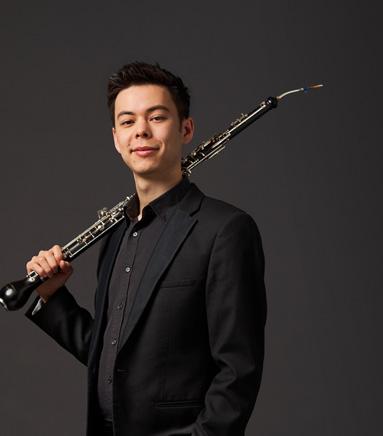
Mr and Mrs B Mellon
Mr G Millar
Mr I Mills
Mrs P Molyneaux
Mr B Moon
Mr R Morley
Mr B and Mrs C Nelson
Mr and Mrs K O’Hare
Professor Stephen Osborne and Frank Osborne
Mr and Mrs K Osborne
Dr G Osbourne
Ms S Park
Mr R Parry
Misses J and M Penman
Dr M Porteous
Mr J W Pottinger
Miss J A Raiker
Mr W Ramage
Mr M Rattray
Ms F Reith
Mrs D A Riley
Dr and Mrs D Robb
Mrs A Robertson
Mr I Robertson
Mr H and Mrs J Robson
Ms A Robson
Mrs E K Ross
F Scott
Mrs S Scott
Mrs J Shanks
Mr J A Shipley
Dr M J and Mrs J A Shirreffs
Mr E Simmons
Dr Colin and Mrs Kathleen Sinclair
Mr M Smith
Mr M J Smith
Mrs E Smith
Mr M A Snider
Dr and Mrs B Stack
Mrs Lorna Statham
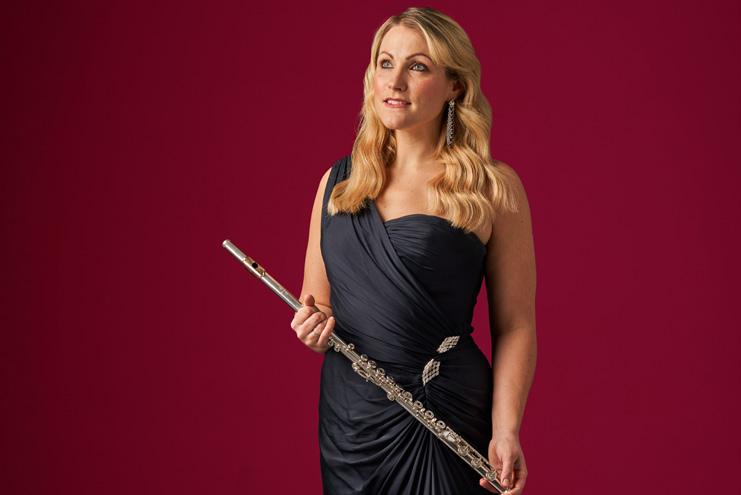
Mrs T Stevenson
Rev N and Mr R Stewart
Mrs R F Stewart
Mr and Mrs Struthers
Mr and Mrs B Tait
Dr and Mrs T Thomson
Mr C Turnbull
Dr S Tweedie
Dr Morag Ward
Mr Nelson and Mrs Barbara Waters
Mr W Watters
Dr and Mrs T Weakley
Mrs V Wells
Mr G West
Miss M Whitelaw
Dr and Mrs D T Williams
Mr D Woolgar
Mr R Young
Mr C and Mrs L Yule
Thank you to all our members of the Circle, including those who wish to remain anonymous. Every one of you makes a real difference.
A BIG THANK YOU TO OUR SUPPORTERS





PRINCIPAL


BROADCAST
If you would like more information about sponsorships, corporate partnerships or fundraising events with the RSNO, please contact Jenny McNeely, Head of Individual Giving and Partnerships, at jenny.mcneely@rsno.org.uk

24 A Festival of Brahms
PARTNERS Alzheimer Scotland • Balhousie Care Group • Black Lives in Music • Child and Adolescent Mental Health Services • Children’s Classic Concerts Children’s Hospices Across Scotland • Dunedin Consort • Education Scotland • Gig Buddies • Glasgow Association for Mental Health Glasgow Life • Hebrides Ensemble • Horsecross Arts • Kibble • Music Education Partnership Group • National Youth Orchestras of Scotland • One Parent Families Scotland • Ping Creates • Refuweegee • Royal Conservatoire of Scotland • Scottish Book Trust • Scottish Refugee Council Scottish Wildlife Trust • Sense Scotland • Sistema Scotland • Starcatchers • St Columba’s Hospice Care • Tayside Healthcare Arts Trust University of Dundee • University of Glasgow • V&A Dundee • Visible Fictions
PROJECT
PARTNER
TRANSPORT PARTNER
PRINCIPAL
MEDIA PARTNER
SPONSORS FUNDERS
SUPPORTERS PARTNERS Glasgow Chamber of Commerce • Institute of Directors • Scots Magazine The Scottish Council for Development & Industry • Smart Graphics
PARTNER
CHAIR
CORPORATE
CHARITY
Ecosse
ROYAL SCOTTISH NATIONAL ORCHESTRA
PATRON
Her Late Majesty The Queen
RSNO BOARD OF DIRECTORS
Elected Directors
Dame Susan Bruce DBE
CHAIR
John Heasley
HONORARY TREASURER
Kat Heathcote
Linda Holden
Neil McLennan
Costa Pilavachi
CHIEF EXECUTIVE
Alistair Mackie
Phoebe Connolly
EXECUTIVE ASSISTANT
Nicola Shephard
EXECUTIVE ASSISTANT (MATERNITY LEAVE)
CONCERTS
Dr Ingrid Bols
PLANNING OFFICER
Michael Cameron
DRIVER AND DEPUTY STAGE MANAGER
Emma Hunter
DEPUTY ORCHESTRA MANAGER
Ewen McKay
HEAD OF ORCHESTRA MANAGEMENT
Jim O’Brien
DRIVER AND ORCHESTRA TECHNICIAN
Richard Payne
LIBRARIAN
Tammo Schuelke
HEAD OF PLANNING
Craig Swindells
HEAD OF PRODUCTIONS
Matthias Van Der Swaagh
CONCERTS ADMINISTRATOR
Xander van Vliet
LIBRARY ASSISTANT
Christine Walker
CHORUS MANAGER
LEARNING AND ENGAGEMENT
Andy Stevenson
DIRECTOR OF ENGAGEMENT
Samantha Campbell
HEAD OF ENGAGEMENT (MATERNITY LEAVE)
David Robinson
Gurjit Singh Lalli
Jane Wood
Player Directors
Helen Brew
David Hubbard
Dávur Juul Magnussen
Sophie Lang
Paul Philbert
Lorna Rough
Nominated Director
Cllr Edward Thornley
THE CITY OF EDINBURGH COUNCIL
Chrissie Johnson
PROJECT MANAGER
Rosie Kenneally
LEAD PROJECT MANAGER
Rachel O’Connor
CREATIVE ASSISTANT
Rachel Pyke
PROJECT MANAGER
EXTERNAL RELATIONS
Dr Jane Donald
DIRECTOR OF EXTERNAL RELATIONS
Lisa Ballantyne
PARTNERSHIPS OFFICER
Ian Brooke
PROGRAMMES EDITOR
Rosie Clark
EXTERNAL RELATIONS ADMINISTRATOR
Jessica Cowley
MARKETING MANAGER
Carol Fleming
HEAD OF MARKETING
Constance Fraser
COMMUNICATIONS AND MARKETING MANAGER
Torran McEwan
INDIVIDUAL GIVING AND PARTNERSHIPS
OFFICER
Jenny McNeely
HEAD OF INDIVIDUAL GIVING AND PARTNERSHIPS
Mirienne McMillan
SALES OFFICER
Graham Ramage
GRAPHICS AND NEW MEDIA DESIGNER

Kirsten Reid
TRUSTS AND PROJECTS COORDINATOR
Dr Naomi Stewart
HEAD OF TRUSTS AND PROJECTS
Sam Stone
INFORMATION SERVICES MANAGER
Youth Advisory Board
Nina Doig
Erin Findlay
Beth Peat
Annie Unieng
Company Secretary
Gordon Murray
RSNO COUNCIL
Baroness Ramsay of Cartvale CHAIR
Ms Ruth Wishart
FINANCE AND CORPORATE SERVICES
Angela Moreland
CHIEF OPERATING OFFICER
Abby Dennison
FINANCE ADMINISTRATOR
Alice Gibson
FINANCE ADMINISTRATOR
Ted Howie
FACILITIES COORDINATOR
Lorimer Macandrew
VIDEO PRODUCER
Sam McErlean
ASSISTANT SOUND ENGINEER
Irene McPhail
ACCOUNTS AND PAYROLL ASSISTANT
Calum Mitchell
ASSISTANT VIDEO PRODUCER
Hedd Morfett-Jones
DIGITAL MANAGER
Susan Rennie
FINANCE MANAGER
Jade Wilson
FINANCE ASSISTANT
Royal Scottish National Orchestra 19 Killermont Street
Glasgow G2 3NX
T: +44 (0)141 226 3868
W: rsno.org.uk
Scottish Company No. 27809
Scottish Charity No. SC010702
@rsnoofficial Youtube.com/thersno
RSNO: Scotland’s National Orchestra 25 Orchestra list and programme details correct at time of going to print. Contents © Copyright RSNO and named authors.
@RSNO
/royalscottishnationalorchestra
The RSNO is one of Scotland’s National Performing Companies, supported by the Scottish Government.
Alexander Armstrong
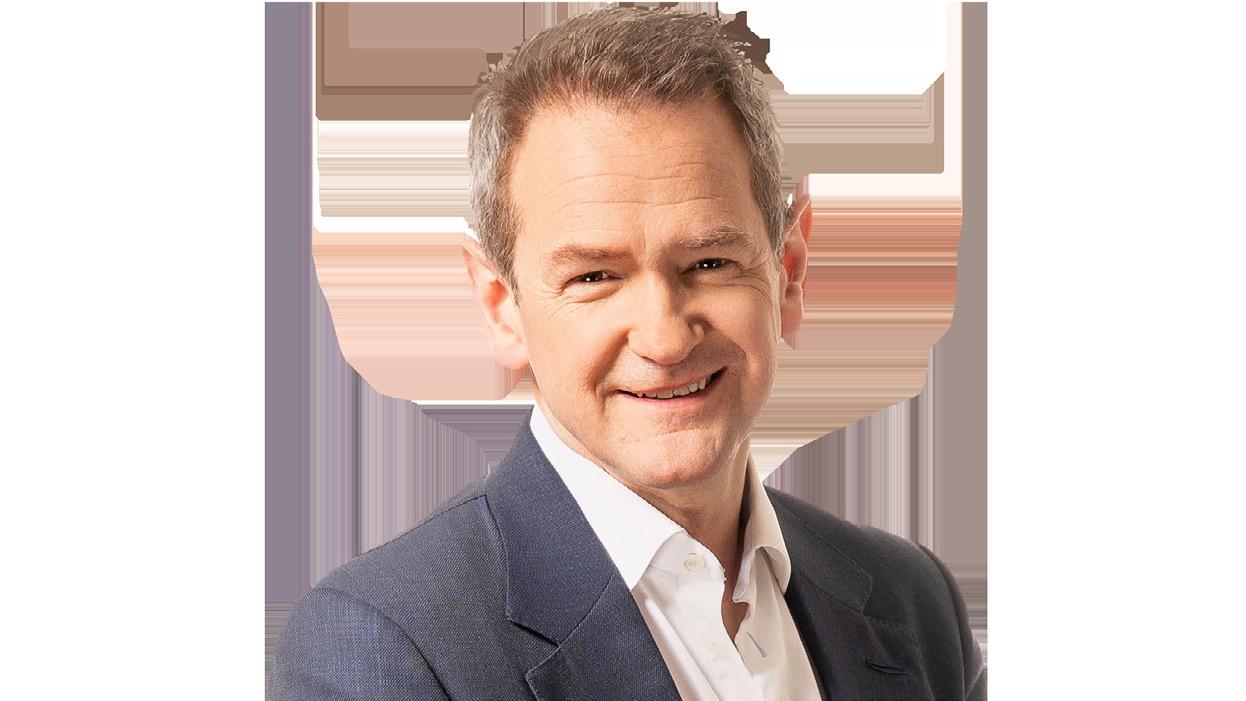
Weekdays from 9am

26 A Festival of Brahms
Wednesday 28 September 2022, 7.30pm
Scottish Chamber Orchestra: BENEDETTI & EMELYANYCHEV
Friday 28 October 2022, 7.30pm
BBC Scottish Symphony Orchestra: CHOPIN PIANO CONCERTO NO.1
Monday 28 November 2022, 7.30pm
MAXIM VENGEROV WITH THE ROMANIAN NATIONAL PHILHARMONIC ORCHESTRA
Thursday 8 December 2022, 7.30pm
Royal Scottish National Orchestra: BEETHOVEN’S ‘EROICA’
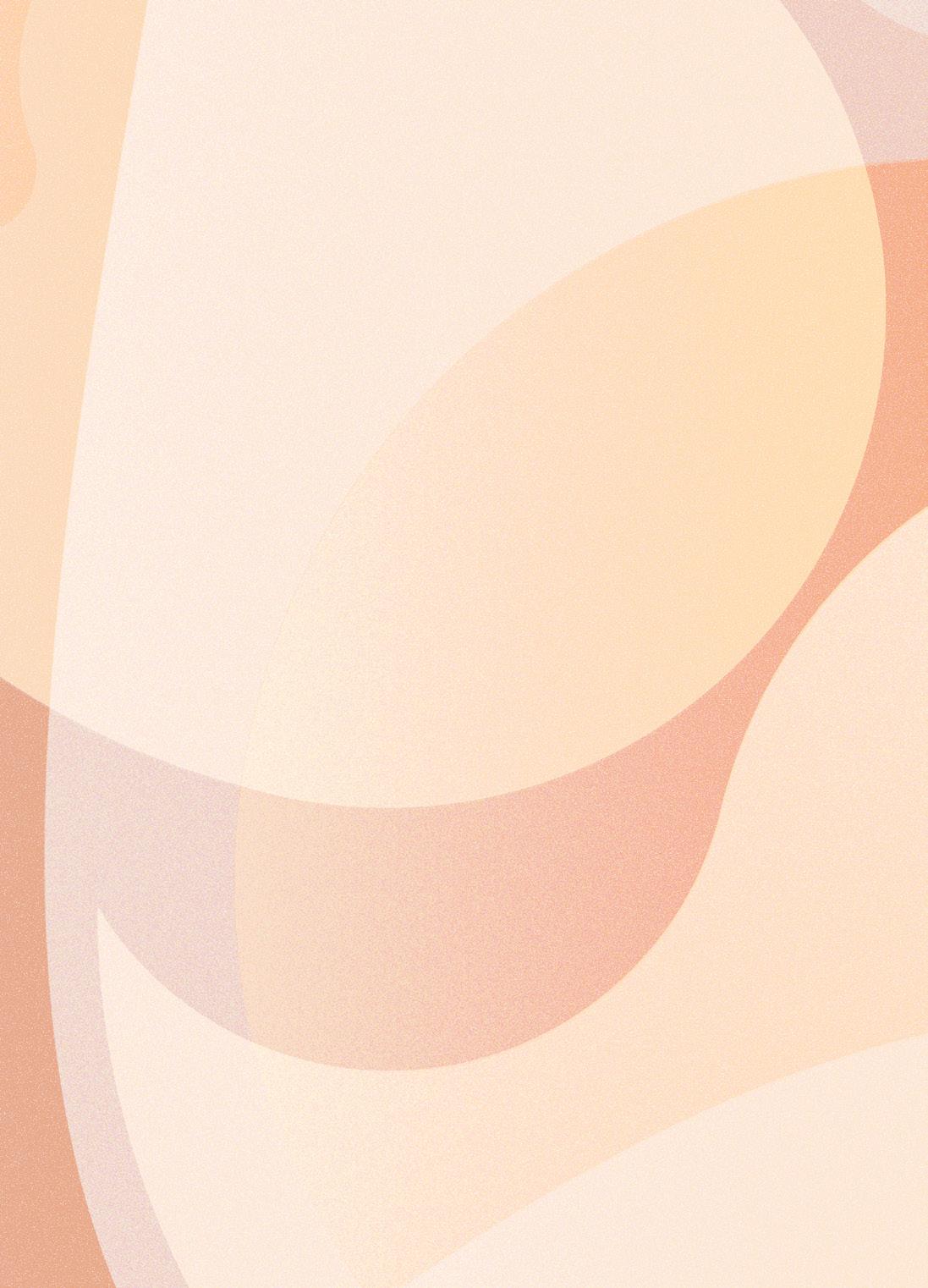
Friday 6 January 2023, 7.30pm
VIENNESE GALA WITH THE ROYAL SCOTTISH NATIONAL ORCHESTRA
Friday 27 January, 7.30pm
BBC Scottish Symphony Orchestra: BACH & STRAVINSKY
Friday 10 February, 1.15pm
Scottish Chamber Orchestra: THE CHIMPANZEES OF HAPPY TOWN (SCHOOLS CONCERT)
Saturday 18 February, 7.30pm
ARMENIAN STATE SYMPHONY ORCHESTRA WITH JENNIFER PIKE
Wednesday 1 March, 7.30pm
Scottish Chamber Orchestra: THE DREAM
Thursday 30 March, 7.30pm
Royal Scottish National Orchestra: A FESTIVAL OF BRAHMS
The information carried in this programme was correct at the time of publishing. The Scottish Orchestras and Horsecross Arts reserve the right to amend artists and programmes for any of the listed concerts if necessary.
RSNO Scottish Charity No SC010702, SCO Scottish Charity No SC015039 and Horsecross Arts Ltd Scottish Charity No SC022400.
The Perth Concert Series has been made possible with generous financial support from The Gannochy Trust. The SCO and RSNO receive funding from the Scottish Government. Concerts by the BBC SSO are scheduled to be recorded for future broadcast on BBC Radio 3.
